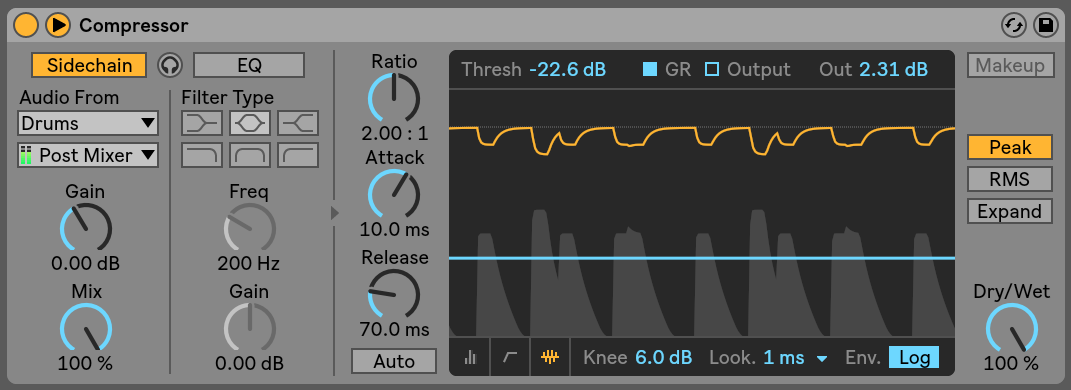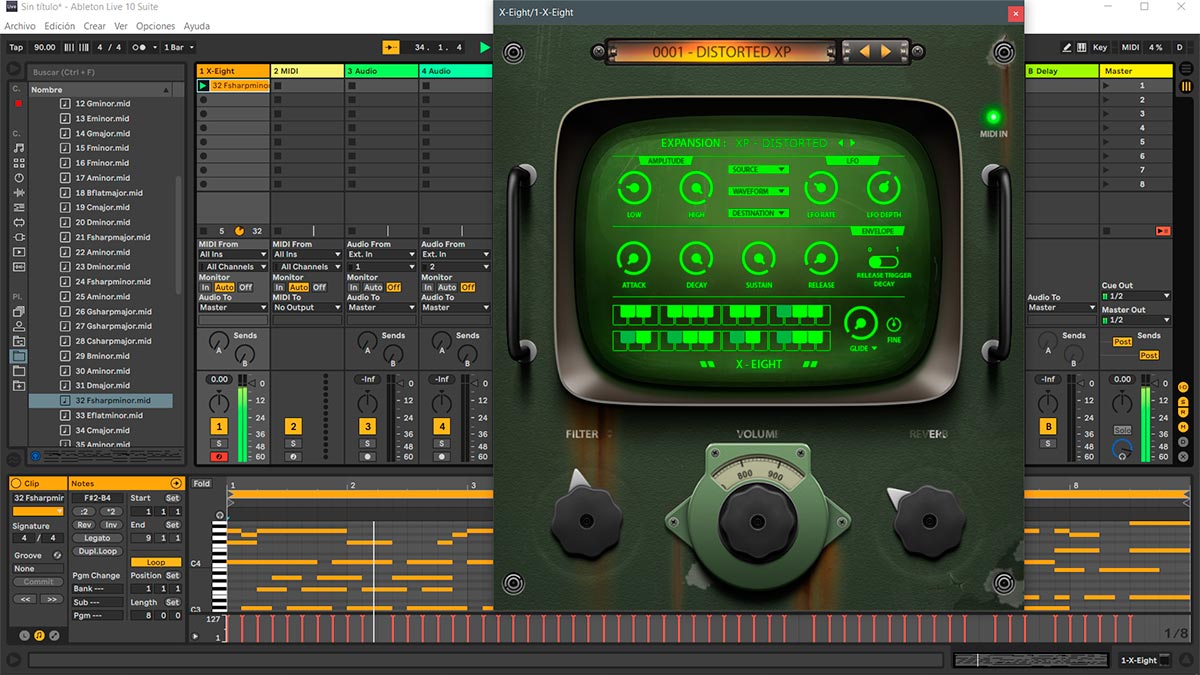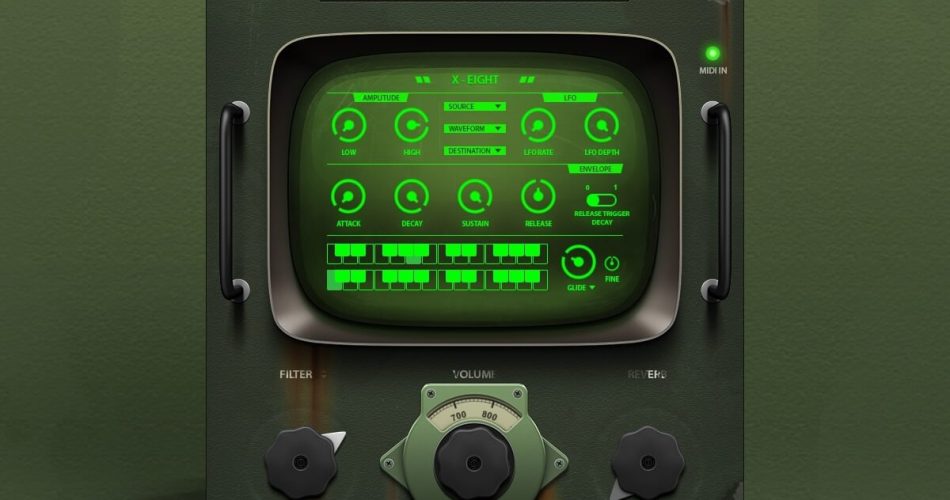Using EQ presets is a quite controversial topic, but they can be a great starting point to help push you in the right direction. This is also a good way to experiment with sound design ideas.
These presets are just the starting point and you don’t have to use them “as is”, so make sure to modify and tweak them according to your idea/mix.
Every DAW comes with at least one EQ/Equalization plugin, however, just having one might not cut it, especially since every EQ plugin offers different features and sonic characteristics. In this article, I will be listing the EQ plugins that I consider to be the best for both mixing and mastering, including parametric-, Dynamic-, Graphic EQs, The 13 Best Free EQ VST/AU for Mixing. For this reason, we picked 17 Best Free EQ VST Plugins, so you can choose your most favorite one and use it for mixing as well as for mastering. You may face several scenarios while mixing and mastering which may include the use of an equalizer, having a transparent display to analyze what you are adding or subtracting with the EQ, multiple EQ. March 2021; February 2021; January 2021; December 2020; November 2020; October 2020; September 2020; August 2020; July 2020; June 2020; May 2020; April 2020. Eq Eight Vst Download Full Layer (two sounds A & B) and split possibilities (octave shift). Independent parameters for sound A & B: Volume, Tone, Pan, Tune, Reverb, Delay, Attack & Release, Octave & Note parameters.
Inside this pack you will find 100+ presets for EQ Eight:
- Acoustic Instruments – 10 presets
- Bass – 13 presets
- Drums – 35 presets
- Synths – 29 presets
- Vocal – 5 presets
- Mastering – 5 presets
- Pads – 3 presets
- Effects – 3 presets
Installation:
Copy all files into:
MAC OS X:
{user name}/Library/Application Support/Ableton/Library/Presets/Audio Effects/EQ Eight
WINDOWS:
C:Users{user name}DocumentsAbletonUser LibraryPresetsAudio EffectsEQ Eight
Want to improve your EQing skills? Check out our new plugin called EQ Wise+, an eight-band parametric equalizer with built-in interactive instrument frequency charts to help you EQ better. Check it out here.
Related Posts
Disclosure: When you buy through our links, we may get a commission at zero cost to you.
An equalizer is a tool that is used to change the balance of different frequency bands in an audio signal. Equalizers are used to correct or attenuate unwanted sounds (rumble sounds, or a low hum from a guitar amplifier, etc).
The most common use of equalization is using it to adjust the frequency balance of individual instruments and or voice to fit individual elements within the overall frequency spectrum of the mix.
If there is one thing you should learn before using an EQ, it should be selecting good samples or instruments right off the bat, this way, you won’t need to fight with the eq, and thus eqing would be a breeze.
Having said that, let’s go over the best EQ VST plugins I have ever come across, starting with…
1.) MAutoDynamicEQ by MeldaProduction
When we are talking of Dynamics processors, we are majorly referring to compressors, and or expanders, which on its own dynamically manipulates the overall level of audio material, and an equalizer is a tool that is used to change the balance of different frequency bands in an audio signal.
What if we combine both together? Well, that is what MAutoDynamicEQ is all about, it bridges the gap between a Dynamic processor and an equalizer, it is a plugin for manipulating the spectral character, and can also react to input levels, now that we know that, let’s get to know some of its major features…

MAutoDynamicEQ doesn’t just support the ability to work on multiple bands, it also has a separate level processor, so, you can say this plugin is a band and a dynamic processor. All the settings for the band are on the Band Settings window, which is displayed by right-clicking the band number on the equalization graph or on the band list.
It also supports Automatic equalization, it would automatically equalize your recording if off course the recording isn’t too bad right from the start. The way it does this is to first analyze your recording, this can be started by pressing the playback and pressing the Analyse target button, you then get a source or predefine analysis by using the load button; what you want the end result to sound like and you finally click equalize, and it is as simple as that.
The automatic equalization is powered by Melda Production’s Filter Adaption technology a.k.a MFA , the good thing about this is that it can perform your equalization for you based on an analysis of your recording, another recording, or even your own ‘drawn-in’ spectral content!
►Key Features:
- The most advanced user interface on the market – stylable, resizable, GPU accelerated
- Unique visualization engine with classic meters and time graphs
- exceptionally versatile modulators
- Adjustable oscillator shape technology
- 4 multiparameters
- M/S, single-channel, up to 8 channels surround processing…
- Smart randomization
- Automatic gain compensation (AGC)
- Safety limiter
- Adjustable up-sampling 1x-16x
- MIDI controllers with MIDI learn
- Very fast, optimized for SSE/SSE2/SSE3 processors
- Global preset management and online preset exchange
- Supports VST, VST3, AU, and AAX interfaces on Windows & Mac, both 32-bit and 64-bit
- No dongle nor internet access is required for activation
- Free-for-life updates
►System Requirements:
Windows
- Windows Vista / 7 / 8 / 10 (32-bit or 64-bit)
- VST / VST3 / AAX compatible host (32-bit or 64-bit)
- Intel/AMD processor with SSE2 support
Always use 32-bit plugins in 32-bit hosts or 64-bit plugins in 64-bit hosts!
64-bit plugins can’t work in 32-bit hosts even if the operating system is 64-bit. Do NOT use 32-bit plugins in 64-bit hosts. They would have to be bridged and can become slow and unstable.

Mac OS X
- Mac OS X (10.7 and newer, 32-bit or 64-bit)
- VST / VST3 / AU / AAX compatible host (32-bit or 64-bit)
- Intel/AMD processor with SSE2 support
2.) T-Bone by Boz Digital Labs
T-Bone is a slant EQ by Boz, and if you know what slant EQ is, then you should know that they are built to automatically boosts one end of the frequency spectrum while attenuating the other end.
Using this Eqing technique is useful for brightening or darkening your tracks very quickly, also, it is an awesome tool for changing the tone of your track without changing the overall level, which isn’t the case in traditional EQ plugins where when boosting a certain frequency, the overall sound gets louder, so, by using this plugin, you can ensure you are using the right tool for the right job.
Another stuff I find really interesting is the fact that it comes bundled with a coupled of good features, e.g, you have a high pass filter with resonance control, low pass filter with resonance.
Additionally, it features a Boom and Harsh Control which lets you control the level of harshness when boosting the levels in a certain frequency.
►System Requirements:
Available Formats
- Windows (32/64): VST2, VST3, RTAS, AAX Native
- Mac (32/64): AU, VST2, VST3, RTAS, AAX Native
3.) KickBox by SoundSpot
If you are into modern music genres e.g Progressive House, Electro, etc, then you know the importance of kick drum, in fact, they are the backbone of many modern music and they can either kill or make your music sound great.
A well-mixed kick drum has a warm sounding low end, doesn’t conflict with the rest of the mix, which is what Kickbox by soundspot is made for, they focus on simplifying the mixing process for any modern kick drum.
The KickBox is modeled after analogue filters and separates the relevant frequency ranges in a very transparent way. KickBox can help you get your kicks sounding extremely tight in a matter of just a few clicks.
The good thing about this plugin is that it works smoothly on both mono and stereo tracks, and the EQ section of the KickBox has been stepped to target the most common areas of the frequency spectrum, allowing you to achieve precise balanced adjustments in a matter of a few clicks.
Each band has a frequency and db control and can be operated with a simple click. This allows you to run through the values without looking at the plugin, so you can trust your ears and not your eyes.
It also features a built-in compressor that has been designed with a completely unique algorithm that has been designed to get your kick drums sounding punchy and clear.
And the most important part of the plugin to me is the presets, you can use the presets as the foundation of whatever you want to achieve, and you tweak it to your tastes, enjoy.
►Key Features:
- Fast and intuitive workflow.
- Analog modeled filters.
- Suited for electronic and acoustic kick drums.
- Extremely light on CPU and RAM.
►System Requirements:
- macOS (Catalina not supported) and Windows
- VST
- VST3
- AU
- AAX (Pro Tools 11.0.2 or higher)
- RAM: 8 GB RAM or more is recommended. Plus at least 8 GB hard disk space for installation.
- Processor: Intel Core 2 Duo, AMD Athlon 64 X2 or newer.
- Licensing: Internet access for activating the licence key. Please ensure any outgoing connection blockers are deactivated.
- Sample Rates: Supported sample rates: 44.1, 48, 88.2, 96, 176.4, and 192 kHz, in both mono and stereo.
4.) FabFilter Pro-Q 3 EQ
Fabfilter isn’t new to the game, and their product are one of the best in the music production industry.
Pro-Q 3 offers everything that a demanding engineer could wish for: top quality linear phase operation in addition to the zero latency and unique Natural Phase modes, Mid/Side processing, variable stereo placement of EQ bands, an intelligent solo feature, optional Auto Gain, and a built-in, fully customizable spectrum analyzer
I really dig the design of the Pro-Q 3, it helps you achieve your sound in the quickest way possible. Via the large interactive EQ display, you can create bands where you need them, enable dynamic EQ for any band, and select and edit multiple bands at once.
Eq Eight Vst Full
►Key features:
- Highest possible sound quality
- Up to 24 EQ bands
- Optional Dynamic EQ mode for all bands (Bell and Shelf shapes), using any slope setting and with perfect analog matching
- Operates in zero latency mode, linear phase mode with adjustable latency, or the unique Natural Phase mode
- Flat Tilt filter shape, a flat tilting correction curve over the whole audible frequency spectrum
- Spectrum Grab: just grab and adjust a peak in the real-time spectrum analyzer right away!
- Different interface sizes and additional Full-Screen mode
- Filter shapes: Bell, Notch, High/Low Shelf, High/Low Cut, Band Pass, Tilt Shelf, Flat Tilt
- Universal filter slope support for all filter types, up to 96 dB/oct
- EQ Match feature to automatically match the spectrum of another Pro-Q 3 instance or an external signal
- Built-in spectrum analyzer with Pre-EQ, Post-EQ and external spectrum visualization, adjustable range, speed, resolution, tilt, freeze, and collision detection
- Auto Gain and Gain Scale
- Optional piano roll display to quantize EQ frequencies to musical notes
- Different display ranges: 3 dB and 6 dB ranges for mastering, 12 dB and 30 dB for mixing
- Intelligent solo mode makes it easy to find problem frequencies and hear the effect of a band
- Phase Invert option to change polarity
- Large output level meter with peak level readout
- Extreme CPU optimization: Pro-Q 3 uses very little CPU and memory, so you can use hundreds of instances in a session
- GPU-powered graphics acceleration
- Double-click text entry of parameter values
- Supports common Pro Tools hardware control surfaces
- Smart Parameter Interpolation
- Sample-accurate automation of all parameters
- Extensive help file with interactive help hints
- Available in VST, VST3, Audio Units, AAX Native, and AudioSuite formats (all both 64-bit and 32-bit)
►System Requirement:
Windows
- 64-bit: Windows 10, 8, 7 or Vista
- 32-bit: Windows 10, 8, 7, Vista or XP
- VST 2/3 host or Pro Tools
macOS:
- OS X 10.8 or higher (64-bit only)
- AU or VST 2/3 host or Pro Tools
- Intel processor
5.) TDR Nova GE by Tokyo Dawn Labs
Eq Eight Vst Plugin
This is similar to Tokyo Dawn Labs SlickEQ, but NOVA GE is more powerful, it is not only a parallel dynamic equalizer but a includes a flexible dynamics processing options allowing the coverage of an impressively wide range of applications.
Be it a master lacking density, muddy mixes, the drum bus asking for more crispiness, snare looking for smark, or a sibilance problem in your perfect take: NOVA is your ultimate goto plugin.
It includes a total of six dynamic EQ bands, each with independent dynamics processing ranging from downward compression over upward compression, upward expansion, up to downward expansion (including gating).
In addition, NOVA GE features an advanced “Smart Operation” panel, which offers a unique way of automating and orchestrating the plugin for spectral matching, resonance removal, and much more.

►System Requirements:
Windows
- Win XP SP2 or above
- VST 32-bit / 64-bit
- AAX 64-bit
Mac
- Mac OS X 10.6.8 or above
- VST, AU, AAX 32-bit / 64-bit
6.) Equalize 2 by Acon Digital
Acon Digital Equalize is yet another parametric equalizer plug-in that isn’t only easy to use but also offers great flexibility in your mixing workflow.
What this equalizer does better is featuring an adjustable frequency, gain, and bandwidths, on top of this, you can also filter slope for each band. The filter slope can be set anywhere from 3 dB to ultra-sharp 120 dB per octave.
One of the things I love about this plugin is the way you can operate it. It features as a zero-latency plug-in when using the minimum phase mode or you can choose to preserve the phase relationships in the linear phase mode.
If you’ve ever used Fabfilter Equalizer, then I’ll say the user interface is somewhat similar to Acon Digital Equalizer, the band parameters can be adjusted using handles directly in the graphical representation of the frequency response, including bandwidths and filter slopes.
A flexible real-time analyzer lets you monitor every aspect of the processing. You can easily switch between full, mid, side, left or right channel processing for each band, and Equalize automatically routes the audio signal internally to ensure the best results and lowest possible latency.
►Key Features:
- Available as VST, VST3, or AAX plug-ins on PC (Windows)
- Available as VST, VST3, AAX, or AU plug-ins on Apple Macintosh (OS X)
- Native 32 bit or 64-bit versions of all plug-ins are available
- Supports sampling rates up to 96 kHz
- Supports multi-channel formats such as 5.1 and 7.1 surround
- Up to twelve equalizer bands
- Eight different band filter types (low cut, low shelf, peak, tilt, bandpass, notch, high shelf, and high cut)
- Band frequency, gain, bandwidth, resonance, and filter slope is freely adjustable for each band
- Three different filter modes, minimum phase, linear phase, or the novel mixed phase
- Adjustable latency and pre-ringing time in mixed-phase mode
- Zero-latency in minimum phase mode
- Channel mode (mid, side, left, right, or full processing) can be set independently for each band
- Multiple selections of bands
- Resizable graphical user interface
- Solo and bypass modes
- Optional automatic make-up gain
- Optional gain to bandwidth linking
- Two spectrum analyzers that can analyze the input or output signal from the mid, side, left, or right channel
- Graphical visualization of the equalizer frequency response
- Preset manager and a large number of factory presets
- Save, load, and categorize user presets

►System Requirements
Eq Eight Vst Free
PC Version (Windows)
- A Pentium IV or higher
- Minimum 256 MB RAM (1 GB recommended)
- Windows 10, 8 or 7
- A host application that is compatible with VST, VST3, or AAX (Pro Tools 10.3.5 or higher)
Macintosh Version (OS X)
- 64 bit Intel CPU
- OS X 10.7 or later
- A host application that is compatible with AU, VST, VST3, or AAX (Pro Tools 10.3.5 or higher